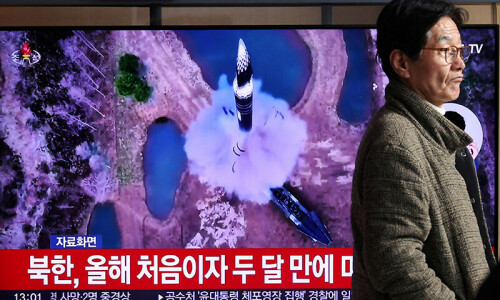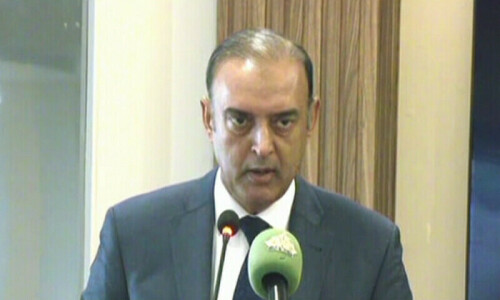WASHINGTON: The United States wants to continue to work with Pakistan to defeat terrorism inside that country, said the US State Department while rejecting the perception that it was only interested in protecting its soldiers in neighbouring Afghanistan.
“One of the reasons that we work so hard with the government of Pakistan to strengthen, deepen, and improve the counter-terrorism relationship that we have,” said the department’s spokesperson Victoria Nuland. “It’s not just about the region as a whole; it’s also about the threat of terrorism to Pakistanis.”
At a Thursday briefing at the State Department Ms Nuland noted that “innocent Pakistanis have been victims of terrorism in the thousands and thousands.”
She was commenting on recent terrorist attacks on the Hazara community in Quetta two days after protesters outside the White House urged President Barack Obama to use his influence to end the attacks.
Asked if Secretary of State John Kerry had spoken to Pakistani leaders on this issue, Ms Nuland said Mr Kerry made “a number of phone calls” to President Asif Ali Zardari and Foreign Minister Hina Rabbani Khar.
“And I’m sure this conversation will continue as his relationship with them continues as secretary,” said the US official without disclosing the contents of these conversations.
Earlier, Pakistan’s ambassador to the United States assured those targeted by the extremists that the government in Islamabad shared their worries and anxiety and would do all it could to protect them.
Sherry Rehman, who was speaking at Harvard University’s Kennedy School of Government, also condemned attacks on the Hazara community and said the government was working with the military to catch the extremists.
The targeted killing of Shia intellectuals in Pakistan came under focus when the son of a slain PPP leader from Peshawar informed the ambassador that extremists associated with Lashkar-e-Jhangvi killed his father, Syed Riaz Husain Shah, last month.
Syed Shehroz Husain said that his father “knocked at every government door, asking for security” after he received death threats from LeJ, but was provided none.
He said he worried that after the American withdrawal from Afghanistan; the extremists would look for new targets and focus their attention on the Shias in Pakistan and asked the ambassador what her government could do to protect them.
“I am very, very sorry for your loss. And I don’t think any words from a diplomat or a government official can quite console you or your family or the future that was stolen from you,” said Ambassador Rehman while responding to the son of the slain PPP leader.
“I know you are angry. I understand that anger. I empathise with it and I can see it resonating in the room,” she added as Shehroz Husain received resounding applause after questioning the ambassador.
The ambassador faced tough criticism over other domestic issues too, including corruption charges against the prime minister.
One student asked her when the government would act to amend the blasphemy law, “after another Salman Taseer, another assassination, another funeral?”
“There is a consensus in the Pakistani society to protect citizens and to further empower all levels of moderation and progressive versions of this law,” Ms Rehman said. “I really cannot speak to this beyond that. We as citizens offer up whatever we can and we will continue to do so.”














































